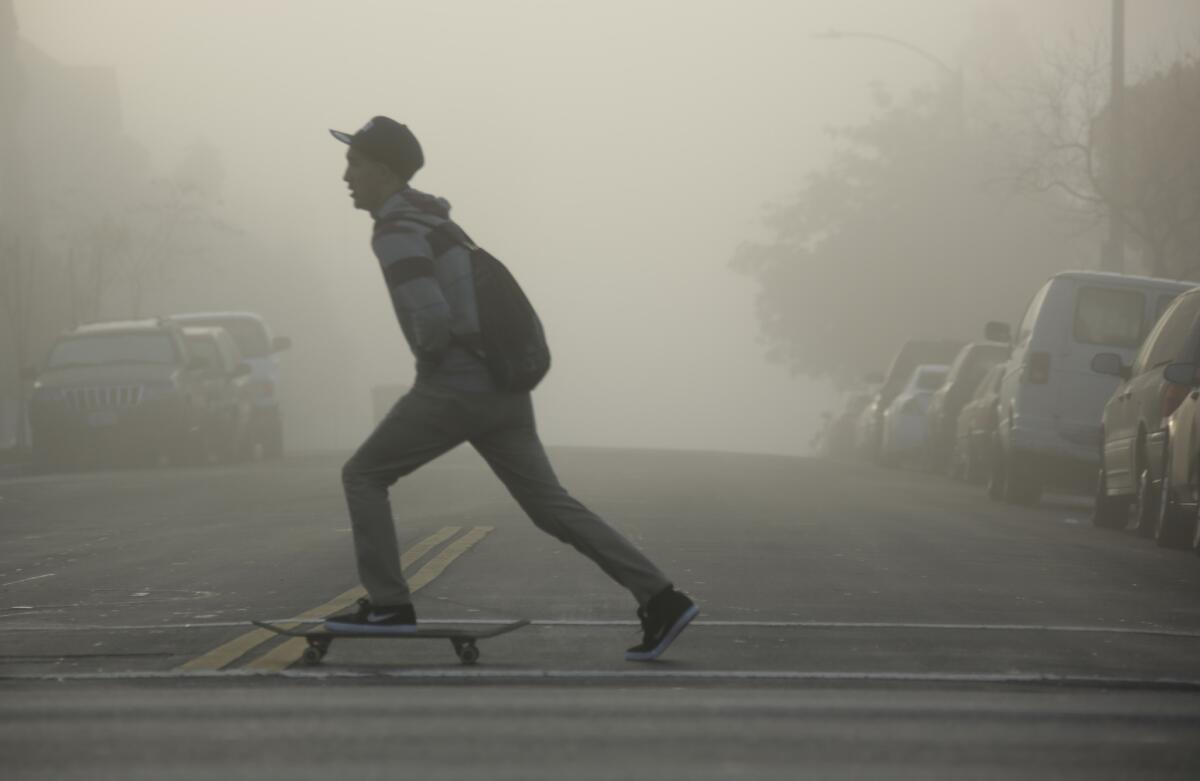How to help elementary school students feel safe after a stabbing on campus

Students in Boyle Heights are leaving for spring break on a heavy note, after reports that a fifth-grade student stabbed another student at Bridge Street Elementary School on Thursday morning.
An 11-year-old boy has been charged with one count of attempted murder and one count of bringing or possessing a weapon on school grounds.
The school sent parents a letter from the principal Thursday, saying that "one student injured another student" and that Los Angeles Unified School District is committed to maintaining a safe environment.
Representatives from the district and the Los Angeles School Police Department declined to provide further details about what happened at the school.
About two-thirds of adults and children in Boyle Heights, just east of downtown, said they feel safe in their neighborhood, according to a 2010 survey.
Students can experience negative mental and emotional effects when a violent event occurs either at or near school.
That can especially be true if they have experienced trauma outside school, which most L.A. Unified students have, said Pia Escudero, L.A. Unified's director of school mental health and counseling.
Escudero and Lorena Valencia, the district's east area mental health coordinator, held a meeting with Bridge Street Elementary staff after school Thursday, to remind them about how to talk to students and what kind of behavior to look for.
"The goal is to bring the kids back to the classroom and to be able to talk to them about what happened," Valencia said. "But also, what did they see and what do they need?”
That's a careful balance to strike, especially in an elementary school -- teachers should let students know that someone at school was hurt, but they have to be careful not to give too many details or dwell on the incident for too long. That could cause trauma to students who didn't witness the incident, Escudero said.
Children respond to trauma in a few ways. "Some children will be numb, some will be hypervigilant, and some will be hyperaroused,” Escudero said. Teachers need to monitor those behaviors so they can identify students who need extra help, or refer them to outside counseling.
And all of those responses make it harder for children to learn. To calm students down from a fight-or-flight response and remind them that their campus is secure, she said, teachers can ask them to talk about what a safe campus looks land sounds like.
It's important for teachers to remain calm and behave as they usually would for their students. They should also be flexible, Escudero said -- this might not be the best day for that spelling test.
Events like the stabbing incident can have long-term effects, so Escudero will work with the school to assess student and parent needs, and add resources in the Parent Center. She didn't specify what those resources would be.
Reach Sonali Kohli at [email protected] or on Twitter @Sonali_Kohli.
Sign up for Essential California
The most important California stories and recommendations in your inbox every morning.
You may occasionally receive promotional content from the Los Angeles Times.








